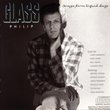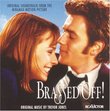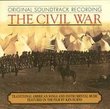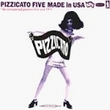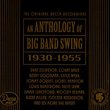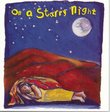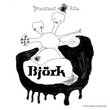| All Artists: John Shirley-Quirk, Ralph Vaughan Williams, Andre Previn, London Symphony Chorus and Orchestra, Heather Harper Title: Vaughan Williams: A Sea Symphony Members Wishing: 0 Total Copies: 1 Label: RCA Release Date: 10/10/1990 Genre: Classical Styles: Historical Periods, Modern, 20th, & 21st Century, Symphonies Number of Discs: 1 SwapaCD Credits: 1 UPC: 090266058020 |
Search - John Shirley-Quirk, Ralph Vaughan Williams, Andre Previn :: Vaughan Williams: A Sea Symphony
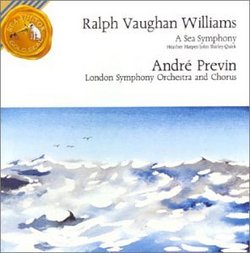 | John Shirley-Quirk, Ralph Vaughan Williams, Andre Previn Vaughan Williams: A Sea Symphony Genre: Classical
![header=[] body=[This CD is available to be requested as disc only.]](/images/attributes/disc.png?v=15401716) ![header=[] body=[This CD is available to be requested with the disc and back insert.]](/images/attributes/disc_back.png?v=15401716) ![header=[] body=[This CD is available to be requested with the disc and front insert.]](/images/attributes/disc_front.png?v=15401716) ![header=[] body=[This CD is available to be requested with the disc, front and back inserts.]](/images/attributes/disc_front_back.png?v=15401716) |
Larger Image |
CD DetailsSimilarly Requested CDs
|
CD ReviewsA great, full-hearted rendition ... W. D. Gross | East Coast, USA | 05/23/2006 (5 out of 5 stars) "... of one of the 10 best pieces of Western music ever written. Each of the four movements has a clear mood and intention, and the orchestra and singers succeed thoroughly in each movement. The first movement, as bracing and tumultuous as one brisk cloudless day out on the ocean, and yet at the same time dedicatory and timeless, is fully realized by the surging, sparkling, nimble drive of the orchestra, and the passionate, clarion voices of the principals and chorus. The first movement introduces the Sea - an introduction in the largest sense, portraying the Sea both as a Being unto itself, and as part of the canvas on which Human history, both tragic and triumphant, is painted. The second movement thoroughly evokes the Sea as a profound and helpful witness of the deepest moments of Human reflection. How amazing that the shores of the Sea - the Sea, with all its immensity and Presence - should be such perfect providers of what humans cherish in Solitude! The soprano is silent in this movement - unless perhaps she intones quietly with the chorus. It is the male lead, John Shirley-Quirk, who, as the voice of the poet, with stately passion and authority guides the listener's thoughts through the awe of what is available to any person on the beach, at night, alone. The third movement soaks us in the joy of children who play in the waves - indeed, in the joy of all creatures who dart and frolic. With total emotional clarity along with instrumental virtuousity, the orchestra and chorus portray the dashing, toppling, lifting, accelerating ecstasy and triumph of the best wave you have ever seen a surfer ride; of the most gorgeous leap you have ever imagined a sail-boarder topping as the water finishes its launch. Do not miss this music, reader: few of us will ever be skilled surfers, or elite outrigger-rowers, or athletes who can strain a sail-board along the crests and troughs where none but experts should go - but if you give yourself to this Third Movement, you *will* feel what they feel: you will coast the tumult, you will be hoisted, thrown, and will splash safe and keel-down to fly again, wherever you are and as many times as you will. There is no more sublime fusion of sound and meaning, in all the World's art, than in the fourth movement of this symphony, and you are, in this performance, in the right hands to be given it as it should be. The symphony turns to the beauty and glory of the World itself, and the urge to comprehend it, voyage it, explore it, know it - and to the Sea as a metaphor for this, and the Sea as a place where it happens, and the Sea as just a starting point for going even further, as we both seek and witness the Soul, and the Source Of Souls, both within us and without us. O thou transcendent, Nameless, the fibre and the breath, Light of the light, shedding forth universes, thou centre of them! Swiftly I shrivel at the thought of God, At Nature, and its wonders - Time and Space and Death; But that I, turning, call to thee O Soul, thou actual me - And lo, thou gently masterest the orbs: Thou matest Time, smilest content at Death, And fillest, swellest full the vastnesses of Space. John Shirley-Quirk, Heather Harper, the chorus, and orchestra with mastery and melting poignancy offer the listener a chance to stand on heights of the Spirit, and to look far, with hope, with curiousity - and most of all, with some moments of certain focus on what to Look For: this music helps one to have a readiness to recognize what should be Recognized, at those moments when it may try to appear to us. It's possible to meet revelations half-way, you know: and if you practice a little bit of Joy and Awe, here and there, there may be less impeding your recognition when it shows up outside of a musical setting. So: lock your door, silence the telephone, imbibe movements one through three - and, in the fourth movement: stand up, take a singer's breaths, look out your window to the horizon, and sing the verses with John and Heather. And, thank you, Ralph Vaughan Williams: may you and Tchaikovsky and Smetana and Dvorak and Brahms and all the other inspired ones sit beside the Source Of Souls, and feel the comfort you have bestowed upon millions. " Dubious sound quality in places Richard, Brit Abroad | San Jose, CA | 04/26/2009 (3 out of 5 stars) "Sometimes my inner cheapskate takes over! And Amazon wakes him up more reliably than most buying situations. I had borrowed the Atlanta Symphony version of this from the local library and liked it a lot. But on Amazon, Atlanta's DDD version it is almost twice the price of the LSO's ADD version. Amazon lists a date of October 1990, so sound quality shouldn't be too bad? Well from the disk itself it seems the recording was made in 1970. Big difference in recording technology!
The piece starts with a huge crescendo. Not only does the LSO version sound heavily compressed, it also sounds quite distorted. This only lasts a few seconds, but by then the magic is gone and I'm reminded how easily I am swayed by my inner cheapskate! To be fair, the on the other 98% of the disk the sound quality is very acceptable if not quite stellar." |

 Track Listings (4) - Disc #1
Track Listings (4) - Disc #1